Hoa Khanh Dam
Towards Knowledge-Centric Process Mining
Jan 26, 2023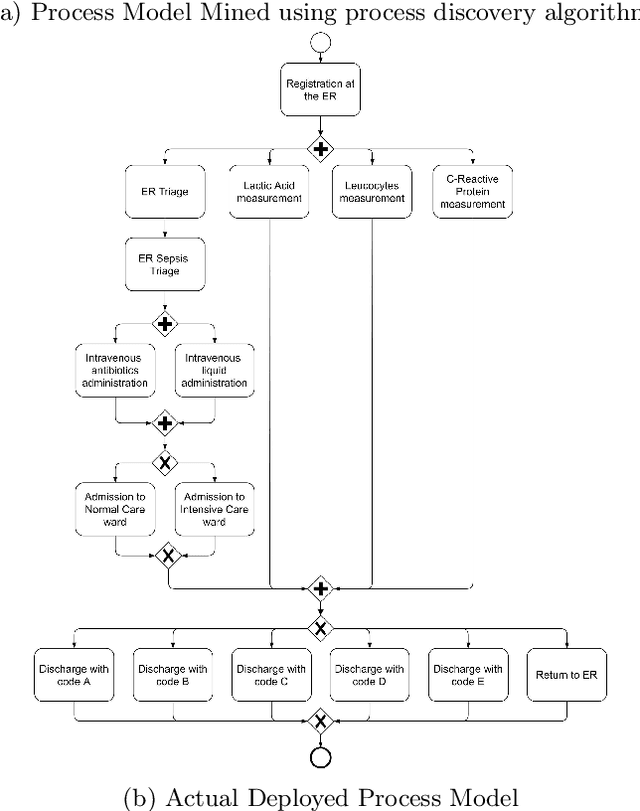

Abstract:Process analytic approaches play a critical role in supporting the practice of business process management and continuous process improvement by leveraging process-related data to identify performance bottlenecks, extracting insights about reducing costs and optimizing the utilization of available resources. Process analytic techniques often have to contend with real-world settings where available logs are noisy or incomplete. In this paper we present an approach that permits process analytics techniques to deliver value in the face of noisy/incomplete event logs. Our approach leverages knowledge graphs to mitigate the effects of noise in event logs while supporting process analysts in understanding variability associated with event logs.
A Value-based Trust Assessment Model for Multi-agent Systems
May 31, 2019Abstract:An agent's assessment of its trust in another agent is commonly taken to be a measure of the reliability/predictability of the latter's actions. It is based on the trustor's past observations of the behaviour of the trustee and requires no knowledge of the inner-workings of the trustee. However, in situations that are new or unfamiliar, past observations are of little help in assessing trust. In such cases, knowledge about the trustee can help. A particular type of knowledge is that of values - things that are important to the trustor and the trustee. In this paper, based on the premise that the more values two agents share, the more they should trust one another, we propose a simple approach to trust assessment between agents based on values, taking into account if agents trust cautiously or boldly, and if they depend on others in carrying out a task.
Towards effective AI-powered agile project management
Dec 27, 2018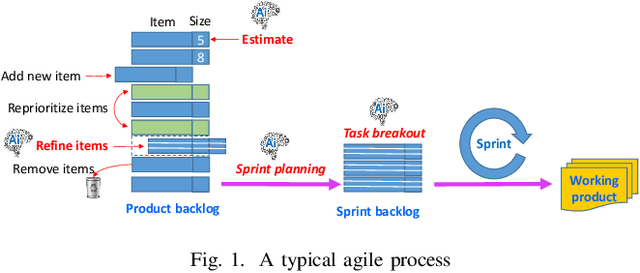
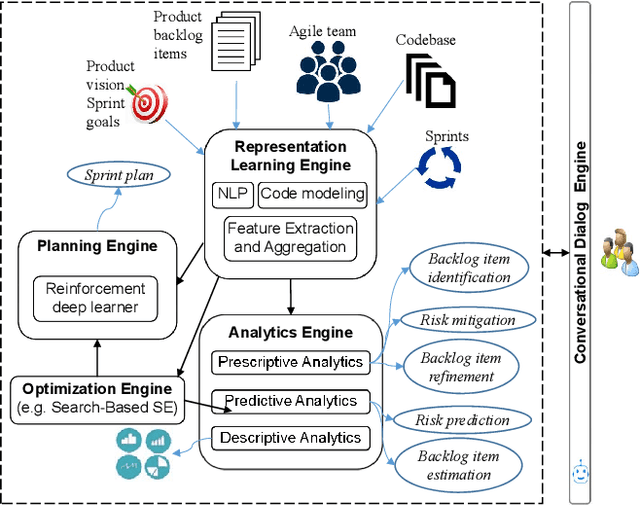
Abstract:The rise of Artificial intelligence (AI) has the potential to significantly transform the practice of project management. Project management has a large socio-technical element with many uncertainties arising from variability in human aspects e.g., customers' needs, developers' performance and team dynamics. AI can assist project managers and team members by automating repetitive, high-volume tasks to enable project analytics for estimation and risk prediction, providing actionable recommendations, and even making decisions. AI is potentially a game changer for project management in helping to accelerate productivity and increase project success rates. In this paper, we propose a framework where AI technologies can be leveraged to offer support for managing agile projects, which have become increasingly popular in the industry.
A deep learning model for estimating story points
Sep 06, 2016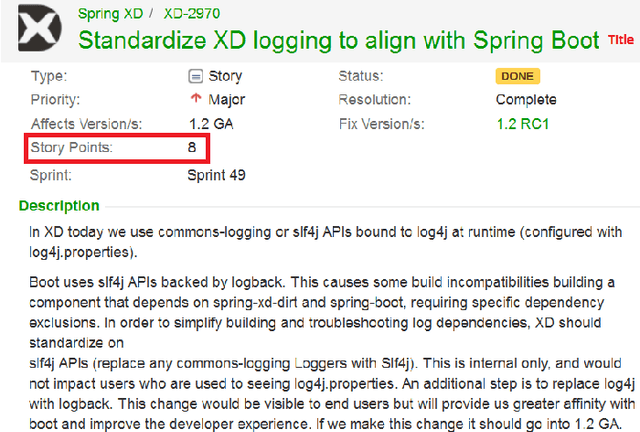


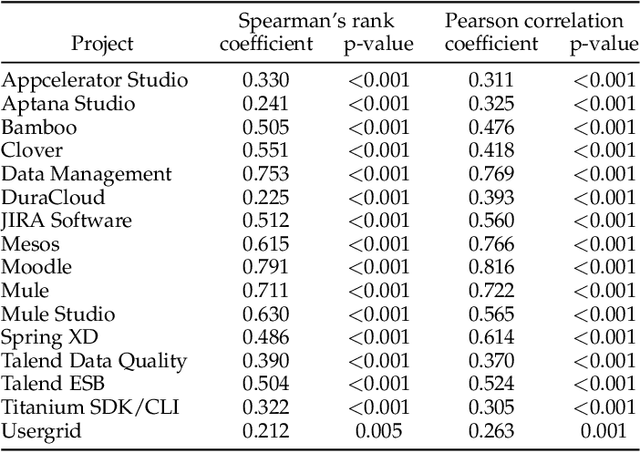
Abstract:Although there has been substantial research in software analytics for effort estimation in traditional software projects, little work has been done for estimation in agile projects, especially estimating user stories or issues. Story points are the most common unit of measure used for estimating the effort involved in implementing a user story or resolving an issue. In this paper, we offer for the \emph{first} time a comprehensive dataset for story points-based estimation that contains 23,313 issues from 16 open source projects. We also propose a prediction model for estimating story points based on a novel combination of two powerful deep learning architectures: long short-term memory and recurrent highway network. Our prediction system is \emph{end-to-end} trainable from raw input data to prediction outcomes without any manual feature engineering. An empirical evaluation demonstrates that our approach consistently outperforms three common effort estimation baselines and two alternatives in both Mean Absolute Error and the Standardized Accuracy.
A deep language model for software code
Aug 09, 2016


Abstract:Existing language models such as n-grams for software code often fail to capture a long context where dependent code elements scatter far apart. In this paper, we propose a novel approach to build a language model for software code to address this particular issue. Our language model, partly inspired by human memory, is built upon the powerful deep learning-based Long Short Term Memory architecture that is capable of learning long-term dependencies which occur frequently in software code. Results from our intrinsic evaluation on a corpus of Java projects have demonstrated the effectiveness of our language model. This work contributes to realizing our vision for DeepSoft, an end-to-end, generic deep learning-based framework for modeling software and its development process.
DeepSoft: A vision for a deep model of software
Jul 30, 2016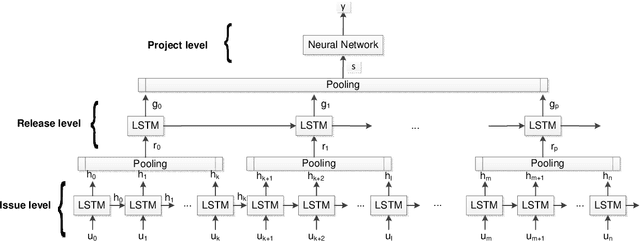
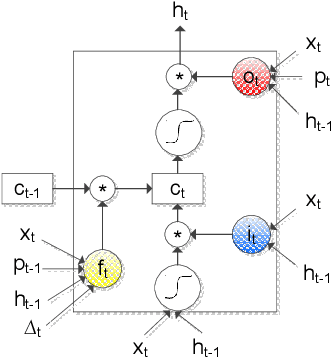
Abstract:Although software analytics has experienced rapid growth as a research area, it has not yet reached its full potential for wide industrial adoption. Most of the existing work in software analytics still relies heavily on costly manual feature engineering processes, and they mainly address the traditional classification problems, as opposed to predicting future events. We present a vision for \emph{DeepSoft}, an \emph{end-to-end} generic framework for modeling software and its development process to predict future risks and recommend interventions. DeepSoft, partly inspired by human memory, is built upon the powerful deep learning-based Long Short Term Memory architecture that is capable of learning long-term temporal dependencies that occur in software evolution. Such deep learned patterns of software can be used to address a range of challenging problems such as code and task recommendation and prediction. DeepSoft provides a new approach for research into modeling of source code, risk prediction and mitigation, developer modeling, and automatically generating code patches from bug reports.
 Add to Chrome
Add to Chrome Add to Firefox
Add to Firefox Add to Edge
Add to Edge